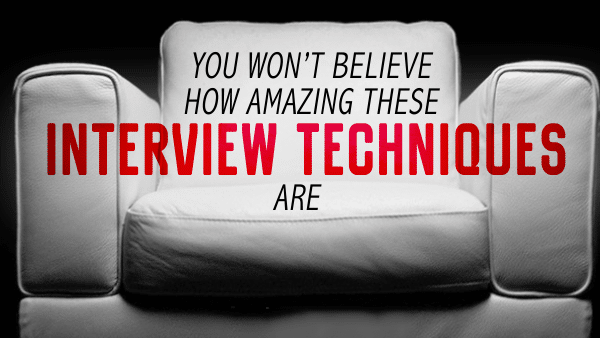
Video Testimony Checklist
Many churches use video testimonies in their services to tell powerful stories of redemption and restoration stories of God at work.
These types of personal and intimate stories work best between friends when the interviewer and interviewee know each other well. Having a friend conduct the interview allows for authenticity and vulnerability. But often times a friend isn’t experienced in this craft.
Below are a number of helpful suggestions to help train and prepare unseasoned interviewers.
Pre-Interview
- Explain that the video will be shared in the service and online to reach as many people as possible with their powerful story. Sharing this upfront helps avoid the possible shock of the story living beyond Sunday.
- Explain that since these videos are edited until the last minute, they won’t be able to see the video until the Sunday services. This helps avoid a possible veto at the last minute.
- Take electronic notes during the pre-interview to get a detailed picture of their story. Use your notes to craft your final questions and the anticipated responses. The notes & questions are helpful if you get sick and someone else has to conduct the recorded interview.
- Ask a peer to look over your storytelling (questions & anticipated responses) for feedback.
PRO TIP: Do not give the finalized questions to the interviewee. If you do, they might try to memorize their answers and you will lose the feeling of spontaneity.
- Discuss where (home, work, outdoors) you will shoot the interview. Your preference should be a location where they feel comfortable and isn’t noisy. Also choose a location that visually connects with their story.
- Discuss what footage or b-roll you can shoot (family interaction, serving at church, connecting in a Life Group) that visually tells their story.
- Ask for any additional footage/photos of theirs that works with the story.
PRO TIP: Develop a curation process within your church to gather these stories. Having a list of potential killer stories allows you to respond quickly when a message topic changes last minute.
Let them know that there is always a small chance that it won’t be used, either due to a technical error (like corrupted footage) or last minute change in service. We have not used stories before, and we want them to know it isn’t because they were bad, but it didn’t fit.
Before Recording:
- Let them know that at any moment, during or after, if they feel that they have overshared, they can let us know and we will not include it. It tends to relax them some.
- Try to keep the interviewee out of the recording room until everything is setup. Having them sit in the interview chair while gear is being setup creates unnecessary anxiety.
PRO TIP: Remind them that this isn’t a ‘live’ interview so they can repeat the answers if needed. This reminder removes the pressure of a perfect response. Also explain that the footage will be edited so they sound clear. This is another confidence booster.
- Let them know you won’t give verbal feedback but you will head nod to indicate you are engaged with what they’re saying.
- Ask them to keep eye contact with you, and not the lens or videographer, during the interview.
- Ask them to incorporate your question into the answer.
During the Interview
- Pay attention to the interviewee incorporating your questions into their answers. If they forget, politely interrupt and ask them to try again.
- Start with a couple of ‘throwaway’ questions. This allows the interviewee to warm up and relax.
- Communicate enthusiasm and involvement in your subject. They want to know that you like them and are interested in their story.
- Smile and nod. Your nonverbal cues will help open them up.
- Listen. A common mistake is thinking about the next question while the subject is answering the previous one, to the point that the interviewer misses important information.
- Followup on what you hear. Be willing to go off script with new questions in response to new information. Great content can be uncovered this way.
- Wait a second after they finish an answer before starting the next question. This keeps the audio ‘clean’ for recording.
- After you have finished your questions, ask them what they would like to add. This unscripted content is often the strongest material you will gather.
- There are two types of interviewees, one that gives brief answers and one that gives long answers.
- Ask open-ended follow up questions (explain, describe, tell more, etc.) for those who are brief and ask recap questions (let’s condense that, give me an overview, etc.) for those who go long.
PRO TIP: Instead of starting the interview by asking the videographer if they are ready, ask the videographer to tap you on the shoulder when they are ready. If you use this tip, you can seamlessly move from small talk to your actual questions. When done well, the interviewee doesn’t even know they are being interviewed.
Post-Interview:
- Thank them for participating and pray over them. Whenever someone steps forward to proclaim the work of God in their lives, Satan also steps forward to try to undermine that work. Commit to continuing to pray for the interviewee for a month following the interview.
Example
We recently had an example of a friend becoming an interviewer through the above suggestions. These suggestions enabled the interviewee to relax and tell her story. Check it out:




